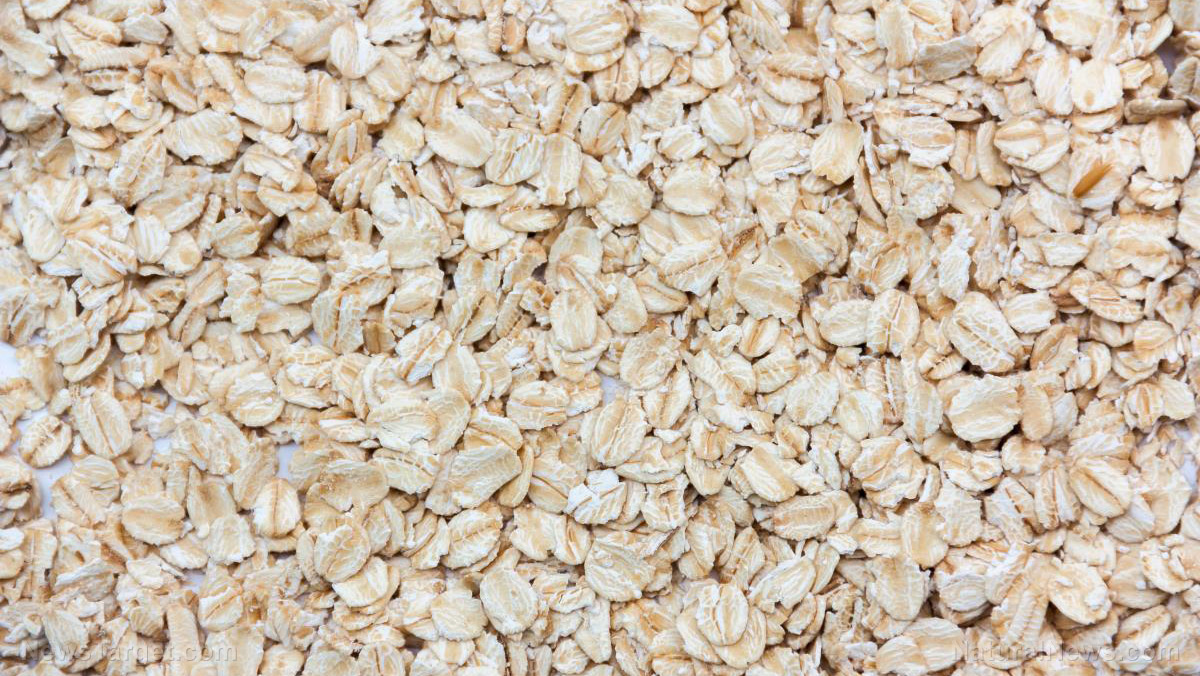by Janine Acero
Oats (Avena sativa) are a widely consumed whole grain. This versatile breakfast favorite can be enjoyed in a lot of ways, and not just for breakfast.
Oats are popular among fitness buffs as an excellent source of soluble fiber, which is responsible for most of the grain’s health benefits. Oats also provide more plant protein than many other grains.
Oats can offer a wide range of nutrients. One cup (81 g) of raw oats contains:
- 307 calories
– 55 g carbs
– 8 g fiber
– 11 g protein
– 5 g fat
– 27 percent of the Daily Value (DV) of magnesium
– 43 percent of the DV of selenium
– 27 percent of the DV of phosphorus
– 6 percent of the DV of potassium
– 27 percent of the DV and zinc
Due to the nutrient-dense nature of oats, they can provide various health benefits. Here are five science-backed reasons to consume oats regularly.
- Oats help lower cholesterol
Beta-glucan, a type of soluble fiber found in oats, has been shown to reduce cholesterol levels. When consumed, beta-glucan turns into gel, which restricts the absorption of cholesterol and interferes with the reabsorption of bile salts that help metabolize fats. According to studies, daily consumption of at least 3 g of beta-glucan from oats can reduce blood cholesterol levels by five to 10 percent.
Moreover, studies suggest that raw oats release more beta-glucan during digestion than cooked oats, affecting fat metabolism and cholesterol levels to a greater extent.
- Oats improve blood sugar control
Beta-glucan in oats has been shown to help control blood sugar levels due to its gel-like nature when digested. According to a study published in the Asia Pacific Journal of Clinical Nutrition, the gel’s viscosity helps slow digestion, preventing blood sugar spikes after a meal and stabilizing insulin production.
A review published in Nutricion Hospitalaria also revealed that consuming at least 4 g of beta-glucan per 30 g of carbs every day for 12 weeks reduced the blood sugar levels of people with Type 2 diabetes by 46 percent.
- Oats reduce high blood pressure
Studies have shown that soluble fibers like beta-glucan in oats can help reduce high blood pressure, which is a major risk factor for heart disease.
A study published in the Journal of Hypertension shows that consuming 8 g of soluble fiber from oat bran every day can help reduce systolic and diastolic blood pressure.
A pilot study, which appeared in The Journal of Family Practice, also reported similar results after participants consumed 5.5 g of beta-glucan every day for six weeks. At the end of the trial, the participants experienced a 7.5 and 5.5 mmHg reduction in systolic and diastolic blood pressure, respectively.
Another study in The Journal of Family Practice involving participants on hypertension medication showed that consuming 3.25 g of soluble fiber from oats daily for four weeks helped the participants reduce or stop their medication.
- Oats support gut health
If you are looking to add more gut-friendly foods to your diet, oats are a great choice. Oats also contain insoluble fiber, which has been shown to support a healthy bowel by increasing stool size.
As its name suggests, insoluble fiber is not water-soluble and does not turn into gel. Gut bacteria don’t ferment insoluble fiber to the same extent as soluble fiber, which allows it to increase fecal size.
According to the European Food Safety Authority, oats can increase stool weight by 3.4 g per gram of dietary fiber consumed.
In a study published in Clinical Interventions in Aging, researchers said that daily intake of oat fiber may be a useful and low-cost approach to treating constipation. Constipation affects approximately 15 percent of the general American population.
Raw oats naturally contain oat bran, which you can also buy on its own. (Related: Oats and gut health: The best breakfast has vitamins and fiber to keep your gut moving.)
- Oats help promote weight loss
As previously mentioned, oats are a popular superfood among fitness buffs. High intake of whole grain cereals like oats has been linked to a lower risk of weight gain and obesity.
The soluble fiber in oats can help keep you feeling full for long periods, thus reducing the risk of overeating throughout the day.
Studies have also shown that consuming oats can increase satiety and suppress appetite for over four hours compared with instant breakfast cereals. These effects can be attributed to beta-glucan.
Coupled with a well-rounded diet and regular exercise, oats can be a beneficial part of any sensible weight-loss strategy.
Learn more about oats and other whole grains at SuperfoodsNews.com.



